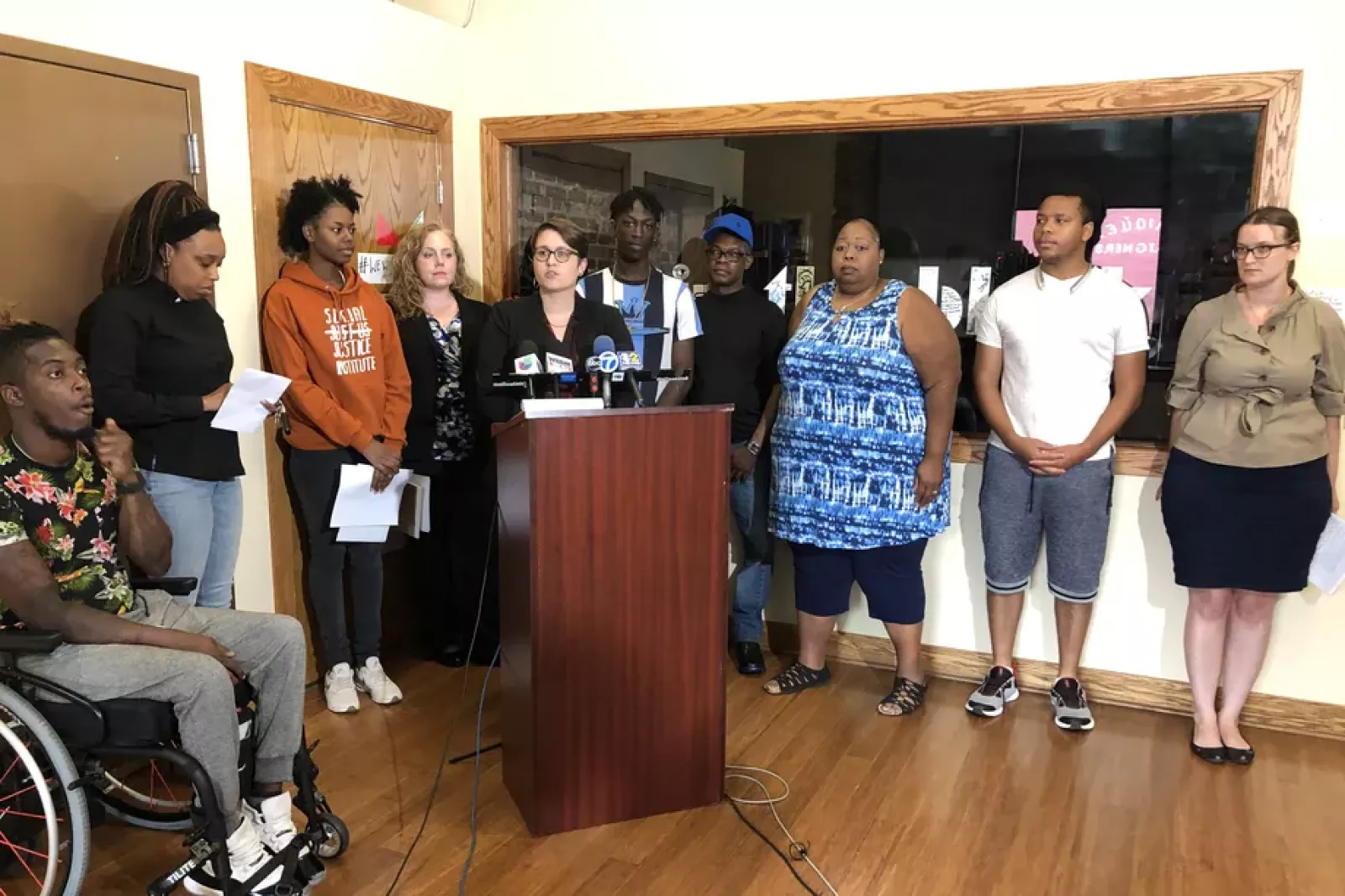
Bond reform activists Monday spoke out against the Chicago Police Department’s new online database showing bond amounts for people charged with gun crimes — pitting themselves against Mayor Lori Lightfoot and police Supt. Eddie Johnson, who support the Gun Offender Dashboard.
“The Gun Offender Dashboard claims to list bond court outcomes for people charged with violent gun crimes. But that’s exactly what it doesn’t do,” said Sarah Staudt, a policy analyst at the Chicago Appleseed Fund for Justice. “Ninety-nine percent of the people listed on that website are charged with offenses where they are not accused of hurting anyone.”
Instead, she said, many people are on the database for a “mere possession of a weapon.”
Last week, Cook County Public Defender Amy Campanelli said the database is inaccurate and does not differentiate between people who have been arrested for gun possession from those who’ve been charged with crimes that involved firing weapons.
Sharlyn Grace, the executive director of the Chicago Community Bond Fund, said the database “contains inaccurate, prejudicial information” and called for its removal, aligning the Chicago Community Bond Fund with Campanelli’s stance on the issue.
“We know jailing people pretrial actually increases their risk of re-arrest,” she said. “It increases recidivism because putting people in jail destroys any positive things that are going on in their lives. It destroys jobs, stable housing, positive social connections. By jailing so many people in the past, we have created more crime in Chicago.”
“We are not going to allow bond reform to be used as a scapegoat to a false narrative that pretends to explain Chicago violence when we know that the root causes are much more complicated,” Grace said.
CPD spokesman Anthony Guglielmi defended the database.
“All data in the Gun Offender Dashboard is public, and is consistent with the information that most counties in Illinois already readily supply to their communities,” Guglielmi wrote in a statement. “Chicago has a right to a transparent criminal justice system, and we aim to help create it.”
Johnson last week responded to Campanelli’s criticism.
“I know personally and professionally the fear, suffering, and pain that gun offenders who carry firearms with impunity can bring to communities across Chicago,” Johnson wrote in the letter.
Stephanie Kollmann, the policy director of the Children and Family Justice Center at Northwestern University Law School, called for the city to create a “comprehensive violence prevention plan” that includes “specific and holistic approaches to gun violence reduction.”
Minister Ciera Walker called for community outreach and services that address trauma in neighborhoods affected by violence as a way to stop the violence.
“You cannot incarcerate your way out of this issue,” Walker said. “You actually have to invest the solutions that work. ... Incarcerating our young black men and women only perpetuates the issues. It does not save lives.”
